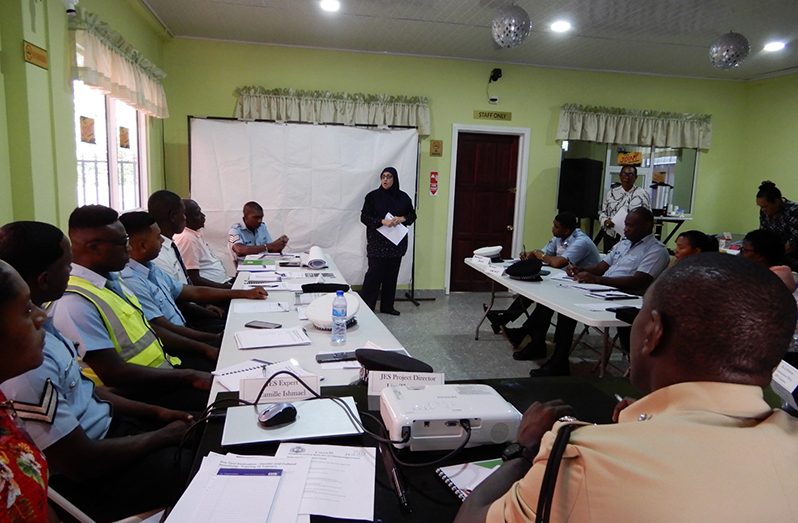IN a recent Gender and Cultural Sensitivity Training hosted by the Justice Education Society (JES), Director of Public Prosecutions (DPP), Shalimar Ali-Hack, SC., stressed the importance of treating the Indigenous Community with respect, reminding police ranks of their duty to uphold the rights of all Guyanese citizens.
During the four-day training held from August 14 to 17, 2023, at the Baramita Police Station, DPP Ali-Hack urged the participating police officers to approach residents of the Amerindian Community with the same respect and consideration that they would afford other citizens.
She reminded the participants that the Amerindian people, like all Guyanese, possess constitutional rights that must be upheld under the law.
According to a release from the DPP chambers, the training, which aimed to promote greater equality in access to justice for women and girls, also sought to empower indigenous women and girls, making them less vulnerable to violence, particularly sexual and gender-based offences, homicides, and gender-based assaults.
The DPP implored the police ranks that whenever complainants approach them to make reports of crimes involving trafficking in persons, sexual offences, domestic violence, consumption of alcohol by underaged children and young teenagers and the smoking of marijuana, “you must always treat them with respect, they are like any other Guyanese who have rights under the supreme law.
On the first day of the training, the DPP provided insights into the criminal law governing a range of offences, from serious indictable matters such as Murder and Rape to lesser offences like Disorderly Behaviour, Larceny, and Assault.
Stressing the role of the police as the first point of contact when incidents occur, JES’s Country Representative, Lisa Thompson, echoed the DPP’s sentiments, highlighting the importance of providing assistance and support to residents in need.
Several members of the Baramita Police Station attended the training. One issue that was raised during the training was the consumption of alcohol by underaged children, with reports indicating that high wine was being consumed regularly by minors. In response, the DPP recommended collaboration among the Toshao (Village Chief), the Police, and the Village Council, along with Social Workers, to address the problem.
The suggestion of setting up a Task Force, consisting of representatives from governmental and non-governmental entities, to address residents’ complaints was also supported by Assistant Superintendent of Police (ASP), James Tappin.
Among those attending the training were Toshao Onika Melbourne, who assisted in interpreting the discussions from English to the local Carib dialect spoken by the residents, and Medex Holly Edghilo, who has dedicated over a decade to serving the community.
The DPP’s team included Assistant DPP, Dionne McCammon and Communications Officer Liz Rahaman.
The collaboration between the DPP’s Office and the Justice Education Society (JES) Guyana aimed to equip police ranks from the Guyana Police Force, local village councillors, health workers, and Toshao Onika Melbourne with the necessary knowledge and sensitivity to better serve and protect all members of the community.



.jpg)










